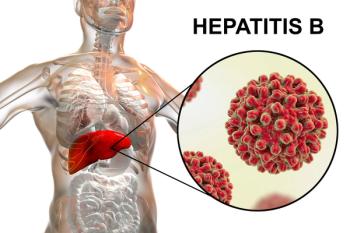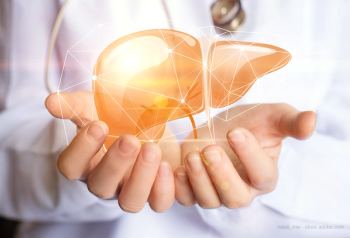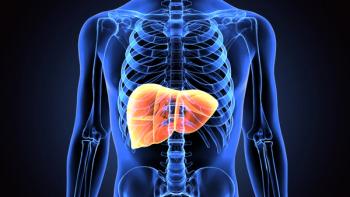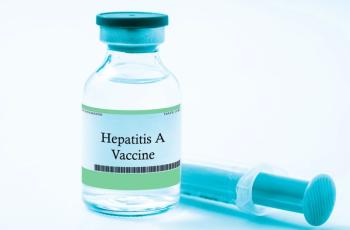
COVID-19 Poses Special Risk for People With Chronic Liver Disease
Austrian study found that approximately one-quarter of patients with chronic liver disease and COVID-19 developed laboratory signs of cholestatic liver failure.
Many people view
Last year, researchers at Medical University of Vienna in Austria undertook a retrospective study to understand just how COVID-19 effects the liver. Doctors have known that liver chemistry abnormalities happen in many patients with COVID-19, especially those who were critically ill or with severe viral infections. It has also been understood that people patients with chronic liver disease face a far greater chance of having developing severe COVID-19 after an infection and have higher mortality rates, particularly those with advanced chronic liver disease.
Lead author Lukas Hartl, M.D., and his colleagues investigated abnormal liver test results in patients with chronic liver disease after a positive PCR test for SARS-COV-2 and the evidence of hepatocellular and cholestatic liver injury. They also looked at clinical outcomes. They reported their
The study included 496 adult patients hospitalized for COVID-19. Most patients were male with a median age of 67.4 years. A non-COVID-19 pneumonia control group of similar age and levels of liver disease was used for comparison.
The study found that patients with chronic liver disease had an elevation of aminotransferases over the course of their COVID-19 infection followed by a progressive increase in the parameters of cholestatic liver injury. Elevation of aminotransferases in the blood may be a sign of hepatitis, cirrhosis, mononucleosis, or other liver diseases.
Although aminotransferases eventually reverted to normal levels for some patients, researchers found a steady increase in evidence cholestatic liver injury, reduction or stoppage of bile flow. Cholestasis can lead to cirrhosis and other liver diseases that can, in turn, lead to end-stage liver disease. In vitro laboratory tests have shown that SARS-CoV-2 can infect cholangiocytes.
“Cholestatic enzyme patterns and even progressive cholestatic liver failure with development of secondary sclerosing cholangitis after severe SARS-CoV-2 infection have been reported, in some cases requiring liver transplantation,” wrote Hartl and his co-investigators.
The researchers found that 31 of the patients with chronic liver disease developed severe cholestasis, while 15 patients with pre-existing liver disease developed laboratory signs of cholestatic liver failure. Ten other patients were diagnosed with secondary sclerosing cholangitis (SSC), while another patient with pre-existing primary sclerosing cholangitis showed radiological and laboratory signs their disease had progressed after COVID-19.
“About one-quarter of patients with CLD (chronic liver disease) and COVID-19 developed laboratory signs of cholestatic liver failure and 15.4% were diagnosed with SSC,” wrote Hartl and his colleagues.“ SSC was indeed more frequent in patients with CLD who were infected with the SARS-CoV-2 than in a matched controlled group of patients with CLD and non-COVID-19 pneumonia. Elevated bilirubin was identified as a strong risk factor for liver-related death among patients with CLD and COIVD-19.”
Newsletter
Get the latest industry news, event updates, and more from Managed healthcare Executive.























